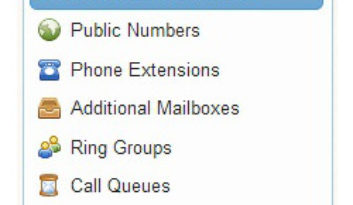
How well does VoIP work over 4G?

Update: we recently carried out the below tests again to see how 4G performance has changed over the past four years. For that more up-to-date blog post please click here.
4G (LTE) has been available for a couple of months now in cities around the UK. If you are in Birmingham, London, Bristol, Leeds or Manchester you are likely to be in a 4G serviced area, and surprisingly these cities have very good coverage when you’re in one. EE claim that it will have 98% coverage by the end of 2014.
At the time of writing, the only provider of 4G in the UK is EE – Everything Everywhere. Unlike other mobile providers, EE actually allow the use of VoIP on their data network.
We have had lots of requests for information about using VoIP over 4G. So as our head office is located in Birmingham, we thought we would do some testing.
Out with the old…
3G has never been good enough to reliably use a VoIP service due to the latency and poor speeds on congested cell towers, but 4G offers up to 100Mbps (realistically ~10-40Mbps) which is greater than the average UK home broadband connection. But there is still a concern of latency which affects VoIP traffic greatly.
We are going to overview the uses, connection options, call quality, latency, concurrency and cost of using VoIP over 4G (or VoLTE – Voice over LTE).
Uses of VoIP over 4G
- Mobile workers – Someone who needs to make calls on the go, may not have WiFi access all the time.
- Temporary office – With minimum 6 month contracts on landlines and internet services they may be impractical for temporary locations.
- Cheaper calls – If you are limited on mobile minutes you can use your data instead. Also allows you to use the outbound numbers on your PBX from your mobile/laptop.
- ISP Backup – A failover for when your internet service goes down. If your calls are critical to you business you can’t rely on a single connection to the internet.
Connection Options
A 4G data service will most commonly be used on smartphones or 4G enabled tablets such as the iPad mini. This means you can use an app such as CSipSimple to make calls over your mobile service – with some devices you can even tether your computer to your mobile device and use one of the many (often free) softphones available.
The other option is to use a mobile hotspot like the Huawei E589, which allows you to connect your devices over WiFi. This could include softphones on your mobile, laptop or even desk based handsets that connect using WiFi.
For testing I will be using a Huawei E589 connected to my laptop at several locations around Birmingham including our head office in the Science park, around Snow Hill and near Moor Street. The softphone I will use will be Telephone for Mac.
Test One – Aston Science Park
A speed test on speedtest.net reported 11Mbps down 2.2Mbps up on 4G. We have noticed speeds at the science park can vary quite a lot on 4G – at points during the day you can get 20Mbps up/down yet at other times it falls to 7Mbps/2Mbps up/down. This could be due to the amount of ‘tech’ companies around us which are all likely to have 4G devices.
For the test I played a sound file over the call to an extension back at the office. The sound quality was very good – better than a normal GSM call and the latency was not noticeable.
Result: Network Latency: ~38ms Packet Loss: ~1.1% (Packet loss is only really noticeable if it goes over 3%)
Test Two – Birmingham Snow Hill
Speed test reported 15.34Mbps down, 12.25Mbps up.
For the test I made a call on 4G to a friend using a GSM mobile. I suspected at rush hour time in a busy train station the congestion would be noticeable on the network, but surprisingly the quality was fine. But this could just be due to the lack of other 4G devices around at the moment.
Result: Network Latency: ~33ms Packet Loss: 0.8%
Test Three – Birmingham Moor Street
Speed test reported 6.12Mbps down, 7.51Mbps up.
For the test I made three concurrent calls to the echo test (*52). Again the call quality was fine and latency not noticeable.
Result: Network Latency: 36ms Packet Loss: 1.2%
What does it all mean?
Overall, it seems the future could be bright for mobile VoIP – the only concern is the congestion which we may see in a few years when 4G contract prices fall and take-up increases, but for now at least it doesn’t appear to be an issue.
Concurrency
Most mobile users will only be making a single call at a time, but there may be a time when multiple users need to use a mobile service such as in an office or working on a temporary site. Assuming a stable connection with low latency, you could (in theory) make 20+ calls at the same time, without issue, given the above speeds.
Cost & Data usage
Due to the fact EE are the only 4G provider currently operating in the UK and the relatively high infrastructure costs associated with upgrading the network, the prices for 4G data services are currently quite high compared to 3G data services.
For example, 3GB of data on a 12 month SIM only contract will cost around £31/month. Assuming you are using the g.711 codec (64kbps + IP overhead) this will give you around 2500 minutes of call time (~1.24 pence/min on £31 package). Obviously this does not include for other things you may use your data for such as browsing or email. Nor does the cost include any call charges from your VoIP provider.
This is adequate talk time for most users, but it could be too expensive for regular use. Still, it is a good “backup” should your regular WiFi/fixed line connection not be available for some reason, or for time spent on the road.
If you are using VoIP on 4G yourself, feel free to let us know how you are finding it in the comments below!
Useful links
Related reads

© 2010 - 2023 Sipcentric Ltd. Company registered in England & Wales no. 7365592.
The Nimvelo name, logo and icon are registered trademarks. All rights reserved.
